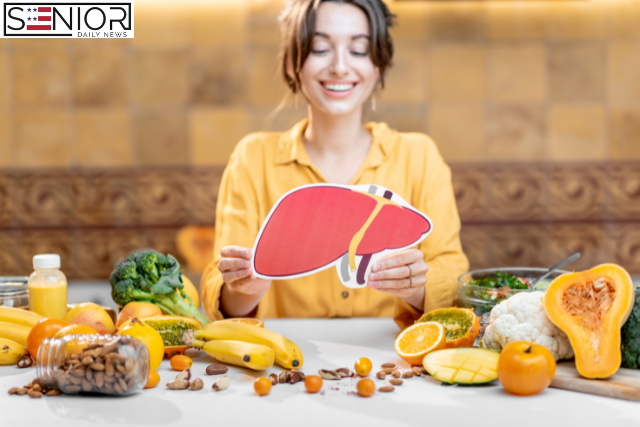How to Clean a Fatty Liver? Natural Ways to Support Liver Health

The liver is one of the body’s most vital organs—responsible for filtering toxins, metabolizing nutrients, storing energy, and aiding digestion. But when excess fat accumulates in the liver, it can impair these functions and potentially lead to serious health issues. This condition is known as fatty liver disease, and it’s more common than you might think.
Whether caused by poor diet, lack of exercise, or excessive alcohol use, a fatty liver is often reversible—especially when caught early. But that raises a crucial question: how do you “clean” a fatty liver? In this article, we’ll explore effective, natural strategies for reducing liver fat, compare lifestyle approaches, and provide evidence-based tips to support your liver’s detoxification and long-term health.
What Is a Fatty Liver?
Fatty liver disease occurs when more than 5–10% of the liver’s weight is made up of fat. There are two primary types:
- Non-alcoholic fatty liver disease (NAFLD): Most common in people who are overweight, insulin-resistant, or sedentary.
- Alcoholic fatty liver disease (AFLD): Caused by excessive alcohol consumption.
If left unaddressed, fatty liver can progress to non-alcoholic steatohepatitis (NASH), cirrhosis, or liver failure. But with proper lifestyle changes, fatty liver can often be reversed.
Can You Really “Clean” Your Liver?
While the term “cleaning” or “detoxing” the liver is commonly used, the liver itself is actually the body’s natural detoxifier. What it really needs is support—less burden from toxins, and more nourishment from healthy habits.
There’s no magic cleanse or pill that instantly reverses fatty liver, but consistent, informed choices can promote liver healing and function.
Key Strategies to Reverse Fatty Liver
Let’s compare the most effective methods to clean or reduce fat in the liver through lifestyle changes.
1. Adopt a Liver-Friendly Diet
What you eat plays a central role in liver health. The goal is to reduce fat buildup, improve insulin sensitivity, and prevent inflammation.
Best Diet Approach: The Mediterranean Diet
This eating style emphasizes:
- Fresh fruits and vegetables
- Whole grains (like oats, quinoa, and brown rice)
- Healthy fats (olive oil, nuts, seeds)
- Lean proteins (fish, poultry, legumes)
- Limited sugar and red meat
What to Avoid:
- Processed foods and fast food
- Refined carbs (white bread, pasta)
- Sugary beverages and snacks
- Fried foods and trans fats
- Excessive alcohol
Key Nutrients for Liver Health:
- Omega-3 fatty acids: Reduce liver fat (found in salmon, flaxseed)
- Vitamin E: An antioxidant that may benefit NAFLD (consult your doctor before supplementation)
- Fiber: Helps reduce fat absorption and improves gut health
2. Exercise Regularly
Physical activity is one of the most powerful ways to reduce liver fat—even without significant weight loss.
Recommended Activity:
- Aim for 150–300 minutes of moderate aerobic exercise per week (e.g., brisk walking, cycling)
- Add strength training 2–3 times a week
- Consider yoga or stretching for stress reduction
Why It Works:
Exercise increases insulin sensitivity, promotes fat metabolism, and reduces overall inflammation.
Fun Fact:
A study in Journal of Hepatology found that just 30 minutes of brisk walking 5 times a week can significantly reduce liver fat.
3. Maintain a Healthy Weight
Weight loss of 5–10% of total body weight can dramatically improve fatty liver. Losing even 3–5% can reduce liver inflammation and fat accumulation.
Safe Weight Loss Tips:
- Set realistic goals (1–2 pounds per week)
- Track meals and portion sizes
- Combine diet with regular physical activity
- Focus on long-term habits, not crash diets
4. Limit or Eliminate Alcohol
Even if your fatty liver isn’t alcohol-related, drinking can worsen inflammation and interfere with healing.
What to Do:
- Cut back to no more than 1 drink per day for women, 2 for men
- Ideally, eliminate alcohol entirely for a period of time to give your liver a rest
- Choose non-alcoholic alternatives like sparkling water or herbal tea
5. Manage Blood Sugar and Cholesterol
Many people with fatty liver also struggle with insulin resistance, high triglycerides, and cholesterol—all of which stress the liver.
Steps to Take:
- Get regular blood tests to monitor levels
- Use diet and exercise to keep blood sugar and lipids in check
- Follow your doctor’s advice on medications if needed
Foods that help lower cholesterol:
- Oats
- Avocados
- Fatty fish
- Almonds
- Leafy greens
6. Stay Hydrated
Your liver depends on water to flush out waste products. Dehydration can impair liver function and slow detoxification.
Tips:
- Aim for 8–10 cups of water daily
- Limit sugary or caffeinated drinks
- Add lemon or cucumber slices for a flavor boost
7. Get Quality Sleep
Poor sleep has been linked to insulin resistance, weight gain, and chronic inflammation—all of which worsen liver health.
Tips for Better Sleep:
- Stick to a consistent bedtime
- Limit screen time an hour before bed
- Avoid caffeine late in the day
- Create a quiet, cool, dark sleep environment
8. Reduce Stress
Chronic stress increases cortisol levels, which can affect metabolism, digestion, and liver function.
Stress Reduction Strategies:
- Meditation or deep breathing exercises
- Journaling or therapy
- Nature walks or gentle stretching
- Limiting over-scheduling and multitasking
Natural Supplements: Do They Work?
Some natural supplements may help, but always consult your healthcare provider before use.
Popular Options Include:
- Milk Thistle (silymarin): May help protect liver cells
- Turmeric (curcumin): Anti-inflammatory effects
- Green tea extract: May reduce liver fat
- Berberine: Helps regulate blood sugar and lipids
Caution:
Supplements are not regulated the same way as medications and can interact with other drugs.
FAQs: Cleaning a Fatty Liver Naturally
Q: How long does it take to reverse fatty liver?
A: With consistent lifestyle changes, improvements can be seen within a few months. Full reversal may take 6–12 months or longer, depending on severity.
Q: Is fatty liver always caused by being overweight?
A: No. Thin people can have fatty liver too, especially if they have poor diet habits, insulin resistance, or genetic predisposition.
Q: Can I drink coffee if I have a fatty liver?
A: Yes. Studies suggest 2–3 cups of black coffee daily may have protective effects on the liver.
Q: Should I try a liver detox juice or cleanse?
A: Most commercial detox products are unnecessary. Focus on natural, consistent changes rather than quick fixes.
Q: Is fatty liver dangerous?
A: In early stages, it’s reversible. But if left untreated, it can progress to serious conditions like cirrhosis or liver cancer.
Image Designed Using Canva






